Mark Anthony Neal's Blog, page 257
January 10, 2021
How Atlanta's WNBA Team Helped Raphael Warnock Clinch History-Making Senate Win
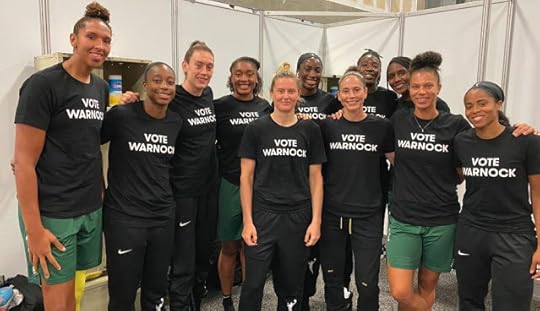
'History was made in Georgia when voters elected the first Black senator to represent their state. Reverend Raphael Warnock defeated incumbent Kelly Loeffler, a co-owner of Atlanta's WNBA squad, the Dream. In winning Tuesday's runoff election, Warnock got a big assist from the players on Loeffler's team. Dana Jacobson has the story.' -- CBS This Morning
The Myth Of American Exceptionalism
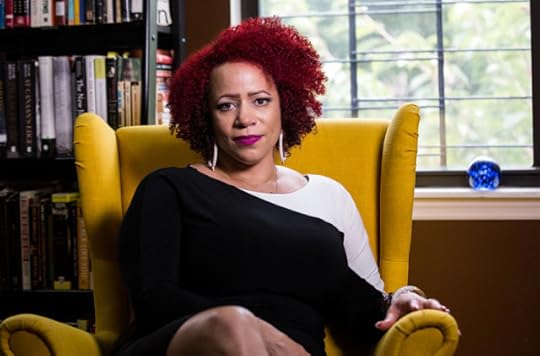
'NPR's Lulu Garcia-Navarro speaks to Nikole Hannah-Jones of the New York Times about how what insurrection at the Capitol pulled back the veil revealed about American exceptionalism.' -- Weekend Edition Sunday
Jazmine Sullivan: Tiny Desk (Home) Concert

'Audiences don't see or hear much from Jazmine Sullivan until she has something to get off her chest. She drops a body of work every five years or so, shakes up the world of R&B with each offering, then quietly goes back to minding her own business. Her latest project, Heaux Tales, is a bold and timely conversation piece addressing truths regarding relationships, sex, social norms, self-worth and a myriad of other topics that women graple with. Each song is masterfully connected to another through unique yet familiar testimonies by women from all walks of life. She starts her Tiny Desk (home) concert with three extended and reworked selections from Heaux Tales, squeezes in thee fan favorite from 2015's Reality Show, then invites Tiny Desk alum H.E.R. to the stage to close with "Girl Like Me".'
Charles Blow on the Greatest Threat to Our Democracy

'New York Times columnist Charles Blow shares his thoughts on voting rights and justice in America.'
'Now The World Gets To See The Difference': BLM Protesters On The Capitol Attack

'From her couch in Minneapolis, Nuny Nichols watched a mob of largely white extremists stage an insurrection in Washington, D.C., set up a noose on a wooden beam outside the U.S. Capitol and walk a symbol of violence and slavery — the Confederate flag — through the building as they stormed and raided it. She was angry, but she was not surprised at the way people in the mob laughed as they took things from the building. There were white extremists who felt at ease giving their names to media outlets and taking selfies with a white police officer. It stood in stark contrast to the way law enforcement handled protests for Black lives this summer in Minneapolis, where Nichols demonstrated.' -- NPR
January 8, 2021
One Hundred: The Ed Gordon Podcast with Michael Eric Dyson
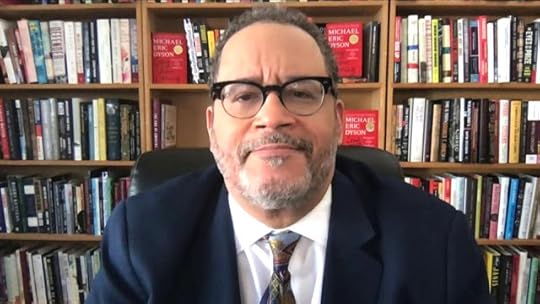
'Host Ed Gordon talks with scholar and author Michael Eric Dyson about his new book, A Long Time Coming: Reckoning with Race in America. They also discuss the insurrection and riot that rocked the Nation’s Capitol in January and they explore the future of the Biden administration.'
Organizing Made the Victories in Georgia Possible by Ben Jealous
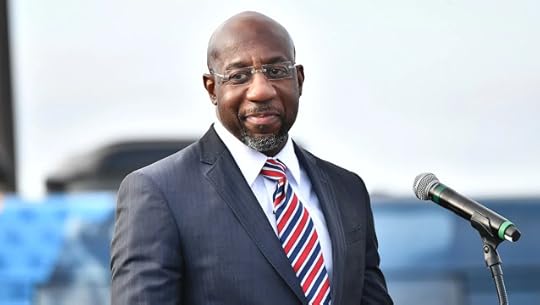
Organizing Made the Victories in Georgia Possible
by Ben Jealous | @BenJealous | special to NewBlackMan (in Exile)
In recent days, we’ve seen the dying gasps of the Trump administration turn into tragic violence in Washington, D.C. There is much to say about that, and serious reckoning ahead when it comes to the causes and the solutions. But in spite of the anger and sadness, here is my plea to you today: Don’t let the chaos created by Donald Trump and his supporters distract you from appreciating something beautiful—the victories of Rev. Raphael Warnock and Jon Ossoff in Georgia’s Senate runoff races and the organizing that made those victories possible.
The stakes in these races were as big as they get. It would take both wins to get control of the U.S. Senate away from Mitch McConnell, who was ready to use his power-abusing ways to block any meaningful progress during the Biden-Harris administration.
I can tell you that many people in the world of politics did not really expect Democrats to pull it off, even after Biden and Harris won the state. They thought beating Trump was a fluke. They still couldn’t imagine Georgia going blue.
That’s because they weren’t paying attention.
I had faith that Warnock and Ossoff were going to win, because I saw how focused and determined Georgia’s progressive organizers were. Trump and his supporters spread lies about the presidential election being stolen and tried to generate chaos in the streets and the courts. But the people responsible for the Biden-Harris victory didn’t get distracted. They focused all their energies on getting voters to turn out one more time. And they went even further, identifying and registering and mobilizing new voters. And it worked.
Democrats—and Black voters especially—went back to the polls more than Republicans did. Turnout in the runoff elections was higher in precincts carried by Biden in November than in precincts carried by Trump.
That doesn’t just happen. It takes hard work—and not just a few weeks’ worth of frenzied activity just before an election. Building the ability to shift power like Georgia Democrats have just done for their state—and for the rest of us—takes long-term vision and long-term commitment.
I’ve been following and learning from Stacey Abrams since we met more than 25 years ago at a training for student organizers. Abrams has been committed to making positive change in Georgia—and making good trouble, as the late John Lewis would say—ever since.
Abrams deserves every bit of attention and praise she has gotten. And she always makes sure to recognize that progress in Georgia has been the collaborative effort of many organizers and many organizations working to bring Black people, Latino people, Asian-Americans, low-income people, and allies into greater political participation.
I’m proud that the group I now lead, People For the American Way, was able to be part of that change-making coalition in Georgia. Our Latinos Vote project produced four radio ads featuring legendary organizer Dolores Huerta and comedian Cristela Alonzo—both People For board members—and ran those ads in every market with a sizeable Latino population. We produced digital ads that were viewed more than 500,000 times in Georgia by undecided voters or voters who had not yet decided to vote.
Separately, People For also encouraged civic participation through its nonpartisan Defend the Black Vote project, which produced radio ads featuring Georgia’s Rev. Timothy McDonald, and reached 400,000 Black voters with text messages providing information on when, where, and how to vote.
Maybe the most encouraging thing about the extraordinary turnout in Georgia is that it was achieved despite years of voter suppression strategies designed to make it harder for some people to vote.
Progress is usually met with backlash. So, we can expect that progressive victories in battleground states this year will spark another round of attempted voter suppression. Pro-democracy activists in those states can take heart—and take notes—from the successful progressive organizing in Georgia.
***
Ben Jealous serves as president of People For the American Way and People For the American Way Foundation. Jealous has decades of experience as a leader, coalition builder, campaigner for social justice and seasoned nonprofit executive. In 2008, he was chosen as the youngest-ever president and CEO of the NAACP. He is a graduate of Columbia University and Oxford, where he was a Rhodes Scholar, and he has taught at Princeton and the University of Pennsylvania.
@font-face {font-family:Helvetica; panose-1:0 0 0 0 0 0 0 0 0 0; mso-font-charset:0; mso-generic-font-family:auto; mso-font-pitch:variable; mso-font-signature:-536870145 1342208091 0 0 415 0;}@font-face {font-family:"Cambria Math"; panose-1:2 4 5 3 5 4 6 3 2 4; mso-font-charset:0; mso-generic-font-family:roman; mso-font-pitch:variable; mso-font-signature:-536870145 1107305727 0 0 415 0;}@font-face {font-family:Calibri; panose-1:2 15 5 2 2 2 4 3 2 4; mso-font-charset:0; mso-generic-font-family:swiss; mso-font-pitch:variable; mso-font-signature:-536859905 -1073732485 9 0 511 0;}p.MsoNormal, li.MsoNormal, div.MsoNormal {mso-style-unhide:no; mso-style-qformat:yes; mso-style-parent:""; margin:0in; mso-pagination:widow-orphan; font-size:12.0pt; font-family:"Calibri",sans-serif; mso-ascii-font-family:Calibri; mso-ascii-theme-font:minor-latin; mso-fareast-font-family:Calibri; mso-fareast-theme-font:minor-latin; mso-hansi-font-family:Calibri; mso-hansi-theme-font:minor-latin; mso-bidi-font-family:"Times New Roman"; mso-bidi-theme-font:minor-bidi;}.MsoChpDefault {mso-style-type:export-only; mso-default-props:yes; font-family:"Calibri",sans-serif; mso-ascii-font-family:Calibri; mso-ascii-theme-font:minor-latin; mso-fareast-font-family:Calibri; mso-fareast-theme-font:minor-latin; mso-hansi-font-family:Calibri; mso-hansi-theme-font:minor-latin; mso-bidi-font-family:"Times New Roman"; mso-bidi-theme-font:minor-bidi;}div.WordSection1 {page:WordSection1;}
January 7, 2021
White Purity, Black Sexuality, and Their Roles in America’s History of Racism: A Conversation with Historians Jane Dailey and Nell Painter

'In her new book, White Fright: The Sexual Panic at the Heart of America’s Racist History, historian Jane Dailey places white fear of Black sexuality and interracial sex at the center of America’s history of racism. Dailey brings into sharp relief how white focus on safeguarding purity fueled centuries of brutality and structural racism. Historian Nell Painter looks at the nineteenth and twentieth century south through an intersecting lens. Her book Southern History Across the Color Line brings to the surface the many ways in which the lives of southern Blacks and whites were thoroughly entangled. Join these two thinkers as they reflect on the white American psyche, the messy tangles between races in the south, and the throughline that brings us from Emmett Till, to Loving v. Virginia, to the racism that continues today.' -- Center for Brooklyn History
Behind the Scene: AFI DWW Alumna Neema Barnette on QUEEN SUGAR
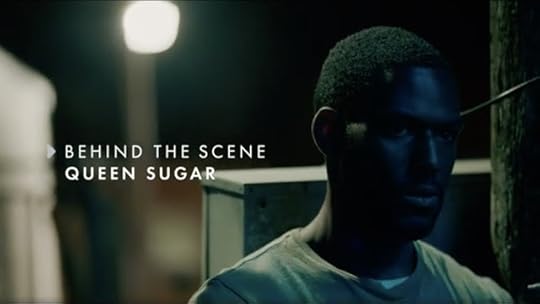
'Filmmaker and AFI Directing Workshop for Women alumna Neema Barnette talks about working on the series QUEEN SUGAR.' -- American Film Institute
Julia Bullock: Tiny Desk (Home) Concert

'Soprano Julia Bullock prefers to be called a "classical singer." It's a rather humble, even vague, appellation for one of today's smartest, most arresting vocalists in any genre. She was just named Artist of the Year by Musical America, who labeled her an "agent of change." Bullock, who also considers herself an activist, has shaken up the classical music world recently with provocative programming and expressive performances. You can witness just that in this extraordinary Tiny Desk (home) concert from Munich, Germany with pianist and conductor Christian Reif, whose sensitive playing seems to anticipate and enhance Bullock's every phrase. He also happens to be her husband.'
Mark Anthony Neal's Blog
- Mark Anthony Neal's profile
- 30 followers



